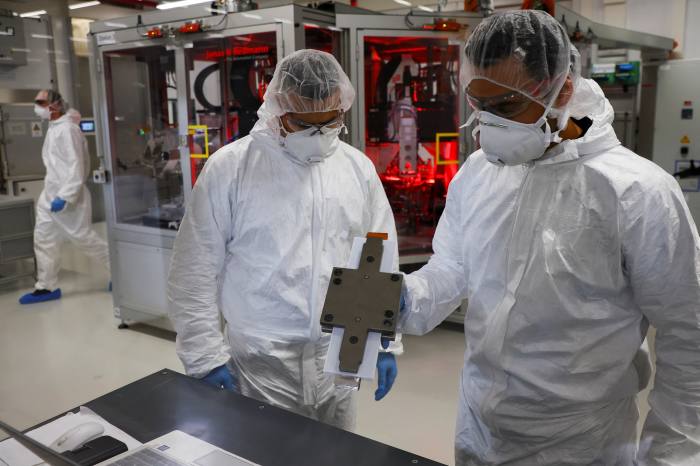Volkswagen wants to pay members of its executive board up to 25 per cent more, sparking wider concerns over Oliver Blume’s role as chief executive of both VW and Porsche.
Blume, head of Porsche since 2015, stepped into the dual role in September after Herbert Diess was ousted as boss of VW by shareholders and union leaders following repeated clashes with the group’s powerful works council.
Some investors have criticised Blume’s unusual position as head of both companies, particularly given his plans to overhaul VW at a difficult time for the group and car industry as it switches to electric technology.
“The dual role of CEO Blume and the resulting capacity restrictions for his job at VW raise the question whether it is the right time to increase his maximum pay,” said Janne Werning, head of ESG capital markets and stewardship at Union Investment, one of the company’s top 15 shareholders.
VW’s supervisory board proposed raising maximum pay for members of the executive board up to 25 per cent from €12mn to €15mn, which shareholders must approve in a vote in May.
Supervisory board members are also in line for a significant pay rise under the proposals, with fixed pay increasing from €100,000 a year to €175,000, while the cap on maximum pay would grow from €7mn to €8.5mn.
The plan, which was developed with the help of a “renowned and independent external remuneration consultant”, kicks in retroactively from the start of 2023.
Under the German system, there are two boards. The executive board is the main decision-making body that manages the company, while the supervisory board oversees the work of the former and advises on strategic planning.

Werning said that Union Investment would engage with VW on the underlining targets of the proposed executive remuneration strategy, which would see long-term incentive schemes play a relatively more important role.
“A raised ceiling should not lead to excess pay because of unambitious targets,” he said.
The decision comes against a backdrop of strikes in Germany and other European countries as workers press for higher pay because of the rising cost of living, while companies warn the demands will fuel further inflation.
VW last year agreed to increase staff pay for 2023 by 5.2 per cent, following negotiations with unions.
Blume has not yet fully laid out his plan for VW, which has struggled with its software strategy and decided to venture into battery manufacturing to support its transition into electric vehicles.
VW said two weeks ago that it would increase investments to expand in the US and also in China on which the company relies for a large portion of its profits, committing €180bn over the next five years.
The carmaker also has a notoriously complex ownership structure, but is ultimately controlled by the Porsche-Piëch family, the heirs of the Porsche founder.
Porsche’s partial listing in September, one of the largest-ever initial public offerings in Europe, allowed the family, one of Germany’s wealthiest, to grab a larger stake in the sports car brand.
Porsche SE, the vehicle through which the family owns its car shares, said last week that it would pay its shareholders a total dividend of €783mn.
Blume was paid €7.4mn in 2022, while the ousted Diess was paid a total of €11.8mn.






